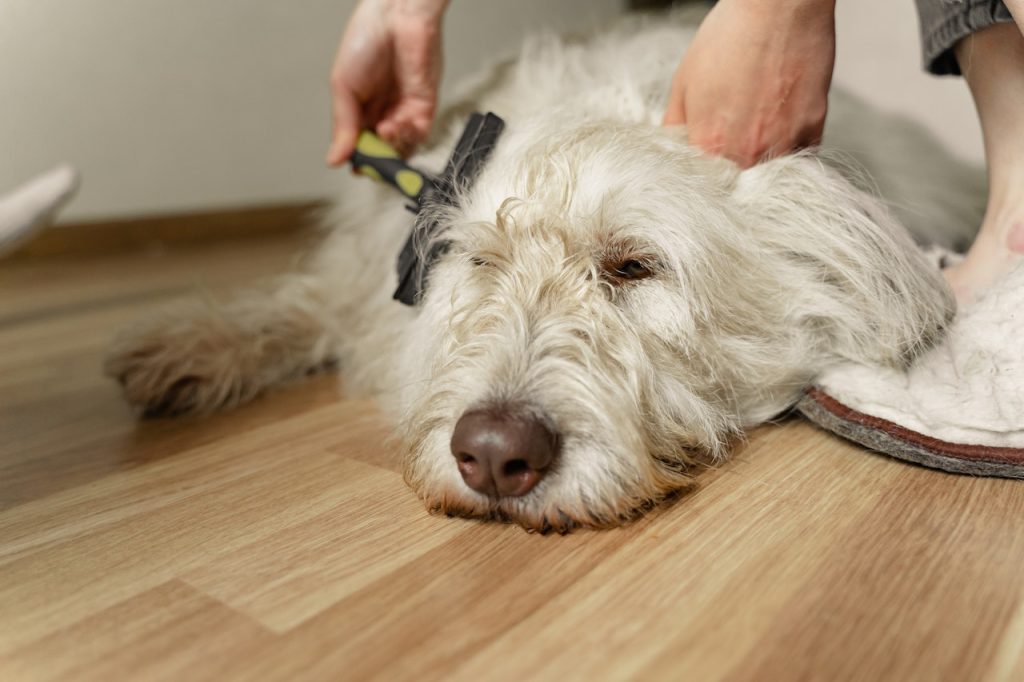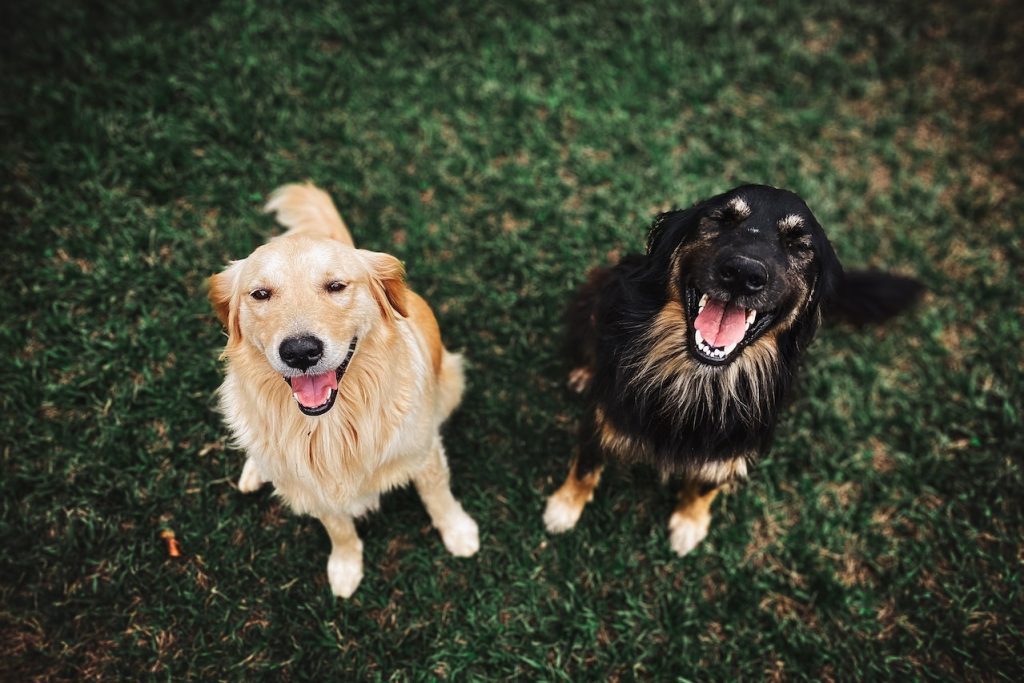Grooming is an essential aspect of caring for your beloved dog. Beyond making them look and smell great, grooming plays a crucial role in maintaining their overall health, especially their skin. Skin issues in dogs can range from minor irritations to severe conditions, but many can be prevented or mitigated through proper dog grooming practices. In this comprehensive guide, we will explore the importance of preventing skin issues through proper dog grooming and provide practical tips to keep your furry companion’s skin in top condition.

The Role of Proper Grooming in Skin Health
Understanding the Connection
Proper dog grooming is not just about aesthetics; it is also about promoting your dog’s skin health. The skin is the body’s largest organ, and it serves as a protective barrier against external elements. Regular grooming helps in several ways:
- Removes Dead Skin and Hair: Grooming removes dead skin cells and loose hair, preventing them from clogging hair follicles and causing irritation.
- Stimulates Blood Flow: Brushing and massaging during grooming stimulate blood circulation to the skin, ensuring it receives necessary nutrients.
- Detects Issues Early: Regular grooming allows you to spot any skin issues, such as rashes, sores, or parasites, in their early stages.
- Maintains Natural Oils: Proper grooming helps distribute natural oils produced by the skin, keeping the coat moisturized and healthy.
Common Skin Issues in Dogs
Before delving into preventive measures, it’s essential to be aware of common skin problems that dogs may face:
- Fleas and Ticks: These parasites can cause itching, inflammation, and infections when they infest your dog’s skin.
- Hot Spots: Hot spots are red, moist, and itchy lesions that often result from bacterial infections or excessive licking and scratching.
- Allergies: Dogs can develop allergies to various allergens, including pollen, food, or chemicals, leading to skin irritation and itching.
- Dry Skin: Dry skin can occur due to weather conditions, improper nutrition, or frequent bathing, causing itching and flakiness.
- Yeast Infections: Yeast infections can lead to itchy, smelly skin and are often triggered by moisture buildup.

Preventive Grooming Practices
Regular Brushing
Brushing your dog’s coat regularly is one of the most effective preventive measures. It removes dirt, debris, and loose hair, preventing mats and tangles that can trap moisture and irritants. The frequency of brushing depends on your dog’s breed and coat type, but aim for at least a few times a week.
Bathing
While bathing is essential for cleanliness, overdoing it can strip your dog’s skin of natural oils, leading to dryness and irritation. Use a mild dog shampoo and bathe your dog every 6-8 weeks or as needed. Ensure thorough rinsing to remove all shampoo residue.
Flea and Tick Control
Invest in flea and tick control products recommended by your veterinarian. Regularly check your dog’s skin for signs of infestation, such as redness or tiny parasites. Promptly remove any ticks you find.
Allergen Management
If your dog has allergies, work with your vet to identify and manage the allergen. This may involve dietary changes, environmental modifications, or allergy medications. Keeping allergens under control can prevent skin issues.
Proper Diet and Hydration
A well-balanced diet rich in essential nutrients is vital for skin health. Ensure your dog receives proper nutrition, including fatty acids and vitamins. Also, provide fresh water to keep them well-hydrated, as dehydration can affect the skin.
Regular Vet Checkups
Regular visits to the veterinarian are essential for preventive care. Your vet can examine your dog’s skin, recommend appropriate vaccinations, and provide guidance on parasite control.
FAQs
Q: How often should I brush my dog’s coat? A: The frequency depends on the breed and coat type, but aim for at least a few times a week.
Q: What should I do if I notice signs of a skin issue on my dog? A: Contact your veterinarian promptly for a proper diagnosis and treatment plan.
Q: Can I use human shampoo on my dog? A: No, human shampoo can disrupt the pH balance of your dog’s skin. Use a shampoo formulated for dogs.
Q: Are there specific dietary supplements for skin health in dogs? A: Yes, some supplements, like omega-3 fatty acids, can promote skin health. Consult your vet for recommendations.
Q: How can I prevent my dog from scratching excessively? A: Identifying and addressing the underlying cause, such as allergies or parasites, can help reduce excessive scratching.
Q: Is it necessary to use a conditioner on my dog’s coat? A: Conditioners can be beneficial, especially for dogs with long or thick coats. They help maintain softness and prevent tangles.

Preventing skin issues through proper dog grooming is not only about their appearance but also their comfort and well-being. Regular grooming practices, a balanced diet, and vigilance for signs of skin problems are essential for ensuring your furry friend enjoys healthy, itch-free skin. By incorporating these preventive measures into your routine and seeking veterinary care when needed, you can help your dog lead a happy and comfortable life.
Read more blog posts!



